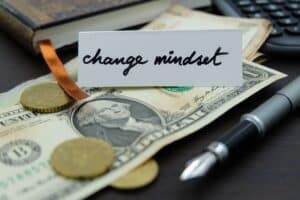Most people start trading to earn more income or gain financial freedom. They enter hoping to replace their job or build a side hustle. Some want control over their time, while others seek an escape from stress. However, very few realise what truly lies ahead. The greatest reward of this journey is not just monetary gain. Instead, it’s how trading changes your mindset over time—a transformation far deeper than expected.
How Trading Changes Your mindset becomes apparent the more you engage with the markets. At first glance, trading looks like numbers, charts, and profit targets. But once you step into the practice, the reality becomes clearer. Trading is more about managing yourself than analysing patterns. Emotions, reactions, and thought patterns take centre stage. You are not only learning technical strategies—you’re facing your own psychology. This internal journey becomes the real challenge.
What begins as a financial endeavour slowly turns into something deeper. As time passes, trading changes your mindset and shapes your daily habits. It also refines your discipline and strengthens your ability to stay focused. Because the transformation unfolds gradually, you may not notice it at first. Nevertheless, your mindset grows sharper, calmer, and far more intentional with each passing week.
Self-Awareness: The First Real Transformation in Traders
Trading is unlike most professions because it forces you to constantly examine your own thoughts and actions. Every decision carries an immediate result, either rewarding or punishing you within minutes. Enter too early, and you lose money. Ignore your plan, and regret quickly follows. Over time, the market becomes more than a financial arena; it turns into a mirror that reflects who you really are.
In the beginning, traders often react emotionally:
- One day you chase a fast-moving market, fearing you’ll miss out.
- Another day you exit too soon, afraid of losing small profits.
- Sometimes you hold onto losing trades far too long, unwilling to admit you were wrong.
These actions look like technical mistakes, but they are actually emotional habits playing out in real time. As experiences repeat, you begin to notice these tendencies more clearly. This awareness is the first sign of transformation.
Once you recognise your patterns, change becomes possible. Many traders start keeping journals, not just of trades, but of emotions and decisions behind them. Over weeks, reviewing those notes reveals hidden triggers and blind spots. Slowly, behaviour shifts. Emotional impulses lose power, and composure strengthens.
The impact goes far beyond trading. Self-awareness cultivated through charts extends into everyday life. You become more attentive during conversations, more patient with others, and less reactive under stress. Trading quietly turns into a discipline for living—training your mind to pause, reflect, and respond with greater clarity.
Emotional Mastery: Building Discipline Trade by Trade
The forex market is one of the most emotionally challenging environments you can step into. Prices move in unpredictable waves, reacting to global news, shifting economies, and mass psychology. One strong profit can make you overconfident, while a sudden loss can spark panic. This emotional rollercoaster is exhausting, and only those who learn discipline survive it.
The first step is to accept emotions as natural.
- You will feel excitement after wins.
- You will feel fear during losses.
- But you can choose not to act on them.
In the early stages, emotions control traders:
- Revenge trading after a loss feels tempting.
- Overleveraging seems like a way to recover quickly.
- Carefully prepared plans are abandoned in moments of panic.
Eventually, the cost of these habits becomes clear. That realisation pushes traders to create strict rules and stick to them. They learn to pause after losses, to reduce size when unsure, and to celebrate wins without overconfidence. This gradual process builds emotional discipline trade by trade.
As this mastery develops, trading feels less stressful. Impulsive decisions decline, while thoughtful responses increase. Stress is replaced with calm focus. Interestingly, the benefits don’t stay on the charts. Emotional steadiness spills into personal life. Patience grows. Overthinking fades. Difficult situations are handled with composure instead of rashness.
When others panic under pressure, disciplined traders stay calm and act with clarity. That ability becomes a strength far beyond trading—it turns into emotional maturity that supports every area of life.
Learning to Lose Without Losing Confidence
Losses are unavoidable in trading. Even top traders encounter losing streaks. The difference lies in the response. While many people view failure negatively, traders embrace it as part of the process.
When setups fail, panic doesn’t help. Reviewing the trade brings insight. You re-examine your logic and ask better questions. By disconnecting self-worth from results, you find clarity. The focus shifts to improving the process. This mindset shift is one of the most valuable for traders.
Mistakes stop feeling personal. Instead, you learn to see them as feedback. With this perspective, resilience grows. Recovery becomes faster. Reflection replaces regret. Shame gives way to improvement.
These lessons don’t end on the trading floor. Outside of trading, you accept constructive criticism more easily. Adaptability increases. Rather than hiding flaws, you begin refining them. Confidence no longer depends on perfection. It grows from honest growth.
Eventually, your mindset stops fearing loss. Learning becomes the goal. You act with boldness and stay grounded. That psychological strength empowers every other area of your life.
Strategic Thinking Through Risk Management
Every trade includes risk. Before entering a position, you evaluate potential loss. This routine builds strategic thinking.
Soon, this mindset expands beyond trading. Decisions are weighed more carefully. You start viewing life through a risk-reward framework. Questions like “What’s the worst-case scenario?” become common. Opportunities are judged with a sharper eye.
Risk-awareness eventually becomes second nature. Drama is avoided. Emotional traps are sidestepped. Energy gets protected. As a result, your thinking becomes sharper. You stop reacting blindly and begin planning deliberately.
Rather than chasing flawless outcomes, you begin managing realistic ones. The process matters more than perfection. Actions become intentional. That’s how trading changes your mindset—by developing your ability to think ahead and choose wisely.
In personal matters, this habit shows up when you start evaluating relationships, time investments, and career choices with precision. You ask if the emotional or time investment is truly worth it. This intentionality helps you conserve your energy for what truly matters.
Developing Patience in a World Obsessed with Speed
Modern society values speed. Quick wins and rapid growth dominate. But trading requires a slower rhythm. Results can’t be rushed. Waiting becomes part of the strategy.
You learn that good trades take time. Rushing leads to mistakes. Chasing moves invites risk. Gradually, you start pausing more often. The process becomes more meaningful.
As patience grows, thinking matures. Instant results no longer feel urgent. You begin trusting your systems. Space is allowed for natural progress.
Eventually, this patience affects your lifestyle. Interactions become calmer. Commitments deepen. Progress becomes fulfilling. That change—valuing time—transforms how you live.
Trading teaches that waiting is strength. The market rewards patience, not impulse. Over time, so does life. Thus, patience learnt in trading prepares you for greater stability in every area.
Structure Creates Freedom: The Power of Routine
Traders thrive on routine. They plan meticulously. Days begin with preparation and end with review.
Initially, structure feels restrictive. Over time, consistency delivers results. Uncertainty reduces. Focus improves.
As habits form, life becomes easier. Mornings bring purpose. Rest comes with peace. Meals improve. Productivity increases. Structure turns into support.
Eventually, these systems impact other areas. Schedules run smoother. Distractions lessen. Calendars become tools, not burdens. Priority replaces procrastination.
With time, your structure becomes identity. Confidence grows from consistency. Automated routines free creative energy. That’s the silent advantage of traders. They live by systems that protect clarity and purpose.
In professional life, this structure allows for more freedom, not less. Because decisions are pre-planned, you have more room for deep thinking. Your workflow becomes leaner. Efficiency becomes a by-product of well-managed habits.
Focus Deepens as Distractions Fade
Trading demands full concentration. A single distraction could mean loss. You remove unnecessary noise. Workspaces are simplified. Notifications are turned off. Deep work becomes the norm.
This focus evolves into a habit. Tasks finish quicker. Conversations grow richer. Anxiety begins to fade.
Gradually, your focus starts defining you. Multitasking loses appeal. Efficiency rises. Learning accelerates. Retention improves. Focus becomes your silent superpower.
The edge isn’t in knowing more—it’s in being more present. That’s what trading teaches through its intensity. Over time, your attention span improves, giving you an edge in every project, call, or decision.
Final Thoughts: Your Mindset Becomes Your Real Edge
Trading goes beyond technical setups. It trains your mind. Strategy and discipline become second nature. Emotions are managed. Thought processes sharpen. Intentionality becomes your norm.
Most importantly, you adopt a long-term mindset. Peace replaces panic. Process overtakes perfection. Confidence begins to grow from within.
Though trading starts as a financial journey, it evolves into personal transformation. The result is a calmer, smarter, more resilient version of you.
And that, in the end, is your greatest edge. As trading shapes your inner world, it unlocks more clarity, focus, and self-control than most paths could ever offer.
Read here to learn more about “AI-Based Sentiment Tracking More Accurate Than News?“

I’m Chaitali Sethi, a financial writer and market strategist focused on Forex trading, market behaviour, and trader psychology. I simplify complex market movements into clear, practical insights that help traders make better decisions and build a stronger trading mindset.




